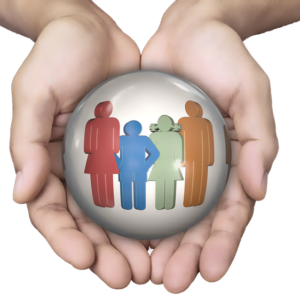In the ever-evolving landscape of technology, one constant has remained vital to our daily lives – cables. Cables, often overlooked, play a crucial role in connecting the world around us. From the charging cables that power our smartphones to the intricate web of cables that enable global communication, the impact of cables on our daily lives is profound and multifaceted.
Powering Our Devices:
One of the most immediate impacts of cables on our daily lives is in the realm of power. As we have become increasingly dependent on electronic devices, the need for efficient and reliable power sources has surged. Cables, ranging from the ubiquitous USB cables to more specialized power cords, facilitate the transfer of energy from the grid to our smartphones, laptops, and other gadgets. The advent of wireless charging may be on the rise, but cables remain a steadfast and widespread means of powering our essential devices.
Communication Networks:
Cables form the backbone of our global communication networks, enabling the seamless flow of information across continents. Fiber optic cables, in particular, have revolutionized the way we connect with each other. These thin strands of glass transmit data at the speed of light, making them indispensable for the internet, telecommunication, and data transmission. The impact of cables on our ability to communicate instantaneously with individuals worldwide is immeasurable, shrinking the vast expanse of the planet into a connected, global village.
Entertainment and Information:
The entertainment industry has undergone a paradigm shift, and cables play a pivotal role in delivering high-quality audio and visual experiences to our homes. HDMI cables connect our televisions to gaming consoles, streaming devices, and audio systems, providing a lifelike and immersive entertainment experience. Similarly, Ethernet cables ensure a stable and fast internet connection, allowing us to stream movies, play online games, and stay connected to the digital world.
Medical Advancements:
In the realm of healthcare, cables are instrumental in various diagnostic and therapeutic applications. Medical devices, such as MRI machines, CT scanners, and monitoring equipment, rely on intricate cable systems to transmit data accurately and in real-time. The impact of cables on healthcare extends beyond diagnostics; they are integral to life-saving equipment, ensuring that medical professionals have the information they need at their fingertips.
Transportation and Smart Cities:
The evolution of smart cities and advancements in transportation are also indebted to cables. Electric vehicles, a burgeoning sector in the automotive industry, depend on charging cables for their energy needs. Furthermore, smart traffic management systems, public transportation networks, and interconnected infrastructure rely on cables to function seamlessly. The impact of cables on the future of urban living is evident in the transformative potential they hold for transportation and city planning.
Challenges and Environmental Concerns:
While the impact of cables on our daily lives is undeniable, it is crucial to acknowledge the challenges they pose. The production, disposal, and recycling of cables contribute to electronic waste, posing environmental concerns. Efforts are underway to develop more sustainable materials and recycling processes to mitigate the ecological impact of cables. Additionally, the physical clutter of cables in our homes and workplaces has spurred innovations like wireless charging and data transfer technologies to reduce cable reliance.
Conclusion:
The impact of cables on our daily lives is far-reaching and profound. From powering our devices to connecting us with the world, cables are the unsung heroes of our increasingly interconnected existence. As technology continues to advance, so too will the role of cables in shaping the way we live, work, and communicate. Balancing the benefits of cable technology with environmental considerations will be crucial as we navigate a future where cables remain integral to our daily experiences.






